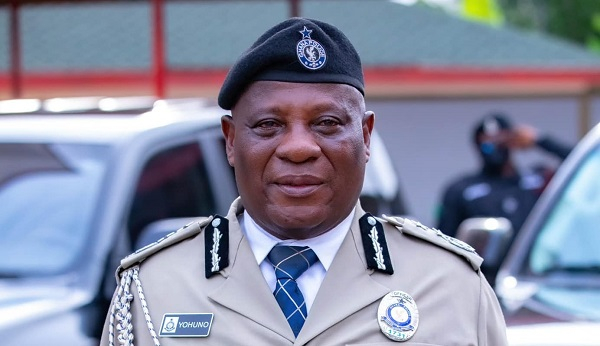The Bawku conflict, a decades-long ethnic and chieftaincy dispute, spiraled into renewed chaos this week, culminating in the alleged burning of the re
The Bawku conflict, a decades-long ethnic and chieftaincy dispute, spiraled into renewed chaos this week, culminating in the alleged burning of the residence of Mahama Ayariga, Majority Leader in Parliament and Member of Parliament for Bawku Central.
The incident comes amid deadly clashes between security forces and local youth that left one person dead and several injured. An Immigration officer is reported to have died in the crossfire.
Violent Escalation
On Wednesday, April 9, 2025, fresh violence erupted in Bawku following a dawn attack on the palace of a local sub-chief, Naba Atamburi, in Poayamire, a community within the Binduri District.
Armed men stormed the residence, opening fire and critically injuring the chief and two of his relatives. The victims were rushed to the Bolgatanga Regional Hospital, but one succumbed to his injuries en route.
Though the motive behind the attack is yet to be officially confirmed, local residents strongly believe it is tied to the long-standing Bawku conflict—an ethnically driven feud rooted in competing claims to traditional authority and territorial dominance.
The conflict, largely between the Kusasi and Mamprusi ethnic groups, has flared repeatedly for decades, often with devastating consequences.
Since the resurgence of tensions in October 2024, at least 83 people have reportedly lost their lives in various outbreaks of violence, according to security sources.
Clashes Between Youth and Security Forces
Later that same day, tensions boiled over into a full-scale confrontation between youth and security operatives in central Bawku.
A joint security force made up of police and military personnel clashed with angry residents, reportedly over grievances surrounding police conduct and perceived political interference.
The confrontation led to the death of a young man, identified as Fuseini Iddrisu, and injuries to at least five others, including a police officer and an immigration officer, all of whom sustained gunshot wounds.
In retaliation, furious youth torched a police barracks, a police vehicle, and three private homes belonging to police officers—including the residence of the Bawku Divisional Police Commander.
Attack on Mahama Ayariga’s Residence
The violence took a shocking turn on Thursday, April 10, when agitated youth allegedly targeted the residence of Mahama Ayariga in Wiidi, a suburb of Bawku.
Initial reports indicate that the property was attacked with stones and other projectiles, breaking windows and damaging parts of the structure. The assault later escalated into an arson attack, leaving parts of the house severely burned.
Eyewitnesses suggest the attack was fueled by outrage over the fatal shooting of the young man the previous day.
Protesters allegedly believed Ayariga had influenced or supported the heavy-handed police response, an allegation the MP has strongly denied.
Ayariga Denies Role
In a swift and firm response, Ayariga issued a public statement condemning the violence and disassociating himself from any operational decisions made by law enforcement.
“I totally condemn the actions of the police in shooting some youth in Bawku today,” he stated. “No decision of a law enforcement officer should be blamed on me because I don’t control them operationally.”
He clarified that he had no influence over police decisions concerning market access or trade, calling for law enforcement to collaborate with traditional leaders such as Zugran Abugrago Azoka II, the overlord of the Kusaug Traditional Area, in efforts to restore peace.
IGP Storms Bawku
Amid growing fears of further unrest, the Inspector-General of Police (IGP), Christian Tetteh Yohuno, led a high-powered delegation to Bawku on Thursday, April 10.
The team, comprising top operations, investigation, and intelligence officers, was tasked with assessing the situation firsthand and reinforcing security in the region.
A statement from the Ghana Police Service confirmed that calm had been temporarily restored through a joint police-military operation.
The IGP and his team also visited the family of the deceased, checked on the injured at medical facilities, and met with officers who had lost property in the chaos.
“The Ghana Police Service will continue to work with the Ghana Armed Forces, chiefs, opinion leaders, and all other stakeholders to ensure security, law, and order in Bawku,” said Assistant Commissioner of Police, Grace Ansah-Akrofi, Director of Public Affairs.
A Region on Edge
Despite recent interventions, Bawku remains a flashpoint of ethnic, political, and security volatility. Government efforts and peace accords have repeatedly failed to end the cyclical violence.
Residents are calling for more sustainable, locally driven solutions that respect cultural leadership and address long-standing grievances.
As investigations continue, the Ghana Police Service has yet to release detailed findings or name any suspects in connection with the palace attack, the killing of Fuseini Iddrisu, or the burning of Ayariga’s residence.

COMMENTS